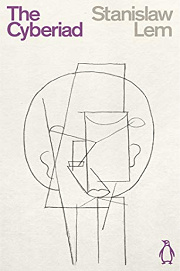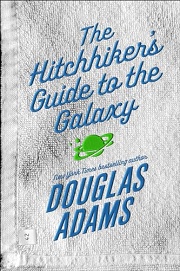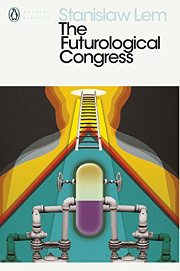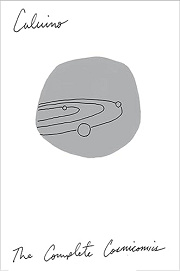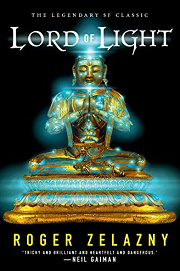Share your thoughts in a quick Shelf Talk!
The Cyberiad by Stanisław Lem
Ingenious robots, cosmic engineers, and mathematical mischief collide in a riot of ideas. From dueling inventors to kingdoms built on logic, The Cyberiad spins satirical fables that are as brainy as they are playful—proof that hard science can also be wildly, joyfully weird.
Have you read this book? Share what you liked (or didn’t), and we’ll use your answers to recommend your next favorite read!
Love The Cyberiad but not sure what to read next?
These picks are popular with readers who enjoyed this book. Complete a quick Shelf Talk to get recommendations made just for you! Warning: possible spoilers for The Cyberiad below.
In The Cyberiad, did you enjoy ...
... the absurd, brainy humor and quickfire wordplay?
The Hitchhiker's Guide to the Galaxy by Douglas Adams
If Trurl’s “anything beginning with N” machine and Klapaucius’s dry retorts made you grin, you’ll love the deadpan cosmic nonsense of The Hitchhiker’s Guide to the Galaxy. Adams fires off jokes with Trurl-like inventiveness—think Arthur Dent hitching rides off Earth’s demolition notice, Ford Prefect explaining improbable physics, and Marvin the Paranoid Android’s gloriously miserable asides. It blends clever gags with sly ideas the way Lem’s tales do, turning big concepts into punchlines without losing the wonder.
... biting sci‑fi satire that skewers utopias, bureaucracy, and technocratic fixes?
The Futurological Congress by Stanisław Lem
If you enjoyed how Trurl and Klapaucius build perfect kingdoms that go hilariously wrong—and how tyrants, kings, and clients get roasted by their own wishes—you’ll revel in Lem’s own hallucinatory send-up in The Futurological Congress. Following Ijon Tichy through a drug‑mediated "perfect" society, the book lampoons official optimism and engineered happiness with the same razor Lem used when his constructors outwitted despots and dragons of probability. It’s sharp, funny, and philosophically prickly.
... playful thought experiments about consciousness, language, and fate wrapped in speculative tales?
Stories of Your Life and Others by Ted Chiang
If the philosophical puzzles behind Trurl’s creations—like machines that compose poetry or simulate worlds of pure logic—hooked you, Chiang’s Stories of Your Life and Others delivers that same cerebral charge. "Tower of Babylon" reimagines cosmology with engineering rigor, while "Story of Your Life" turns linguistics into a meditation on free will and time. Like Lem’s fables, these stories turn abstract ideas into gripping human puzzles, inviting you to think as much as marvel.
... whimsical, idea‑driven vignettes where each episode chases a single cosmic premise to comic‑philosophical ends?
Cosmicomics by Italo Calvino
If you loved dipping into standalone adventures—Trurl bargaining with monarchs, building improbable machines, or dueling with logic—Cosmicomics offers similarly bite‑sized wonders. Qfwfq narrates episodes like "The Distance of the Moon," where a lunar rendezvous becomes a love story, and "All at One Point," where the universe in a single point turns into a social farce. Each tale, like Lem’s, is a crystalline thought experiment wrapped in mischief and awe.
... advanced technology that functions like sorcery in a playful, mythic key?
Lord of Light by Roger Zelazny
If Trurl’s contraptions felt like spellcraft—machines that conjure realities or clamp logic to kings—Zelazny’s Lord of Light turns tech into godhood. On a colonized world, the crew masquerade as deities through reincarnation tech and psionic "miracles"; Sam (the Buddha) hacks the system to challenge gods like Yama. It’s the same gleeful blurring of science and magic you saw when Klapaucius and Trurl bent physics into fables, now scaled to the clash of pantheons.
Unlock your personalized book recommendations! Just take a quick Shelf Talk for The Cyberiad by Stanisław Lem. It’s only a few questions and takes less than a minute.
